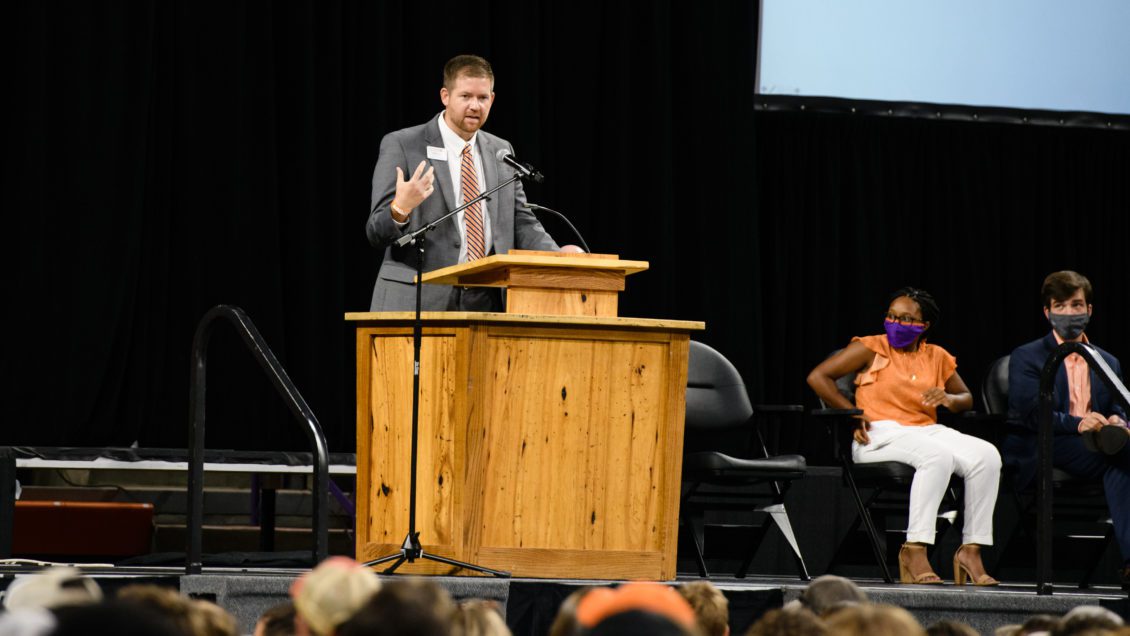Student Affairs staff came together on Tuesday, April 12 to conclude its third year in a virtual educational series known as Experience: IMPACT. The aim of the one-hour Zoom session is to explore work done inside and outside of the division impacting four core themes in Student Affairs: health, safety and wellness; student learning; inclusive excellence; and staff experience.
On Tuesday, practitioners presented on five topics under the core theme of staff experience. Speakers explored various ways through which their respective areas or departments have been able to enhance the professional experiences of their staff.
“We are very passionate about creating a great experience for our staff, so that they feel included, a sense of belonging and are happy and motivated,” said Lisa Bona, chief business operations and strategy officer for Student Affairs. “The staff experience is a vital part of our division’s ability to thrive and have sustainable success.”
—–
Gary Wiser provided an update to a previous presentation on the coaching model utilized by the Office of Fraternity and Sorority Life (FSL). Wiser said it was implemented two years ago in the mold of the famous “Dean Cox” model, meaning more intentional and direct interactions with students on campus.
“We developed this model to track our engagement and the time we spend with our students,” Wiser said. “Just as importantly, we wanted to be more efficient with staff time.”
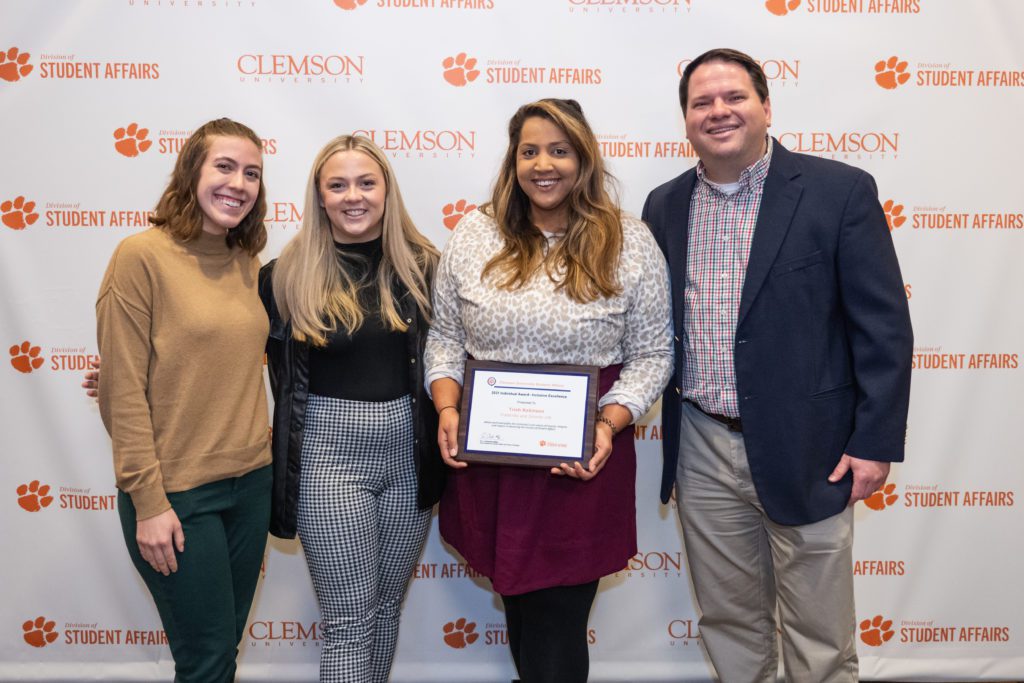
One of the challenges facing any Greek Life office in 2022 is mounting to pressure to measure the impact of work. From risk management issues to varying membership enrollments across the country, keeping fraternities and sororities engaged with campus has proven to be formidable — especially in a time impacted by COVID-19.
Wiser said his staff has conducted 1,036 coaching meetings this academic year. The bulk represent engagement with leaders of the various councils and most meetings range from 30-60 minutes in length.
“Students relied so much on our staff during the COVID-19 period to be able to maintain their operations,” Wiser said. “There was so much unknown, they were constantly contacting our staff for assistance with what to do in different scenarios. This is our first year to see what ‘normal’ looks like.”
The results have been overwhelmingly positive. Students feel more supported and view his staff as significant resources for success. At the same time, FSL staff members now have better awareness of trends within the student community.
—–
The New Student Orientation program has seen its share of changes throughout the years. When a period of modified operations forced virtual transitions for students and their families, staff in the Center for Student Leadership and Engagement adjusted accordingly. Heading into the summer of 2022, CSLE has contracted a third-party service to deliver online modules — primarily for academic advising and course registration — to students, while also offering an optional in-person experience.
CSLE staff has had to also make adjustments within the Orientation Ambassador program.
“Anyone who has ever worked with the Orientation Ambassador program knows that these students are some of the brightest and best leaders we have at Clemson,” said Glenn Spurlin, whose team leads all aspects of transitional programs for new students. “It’s one of the premier leadership programs at Clemson.”
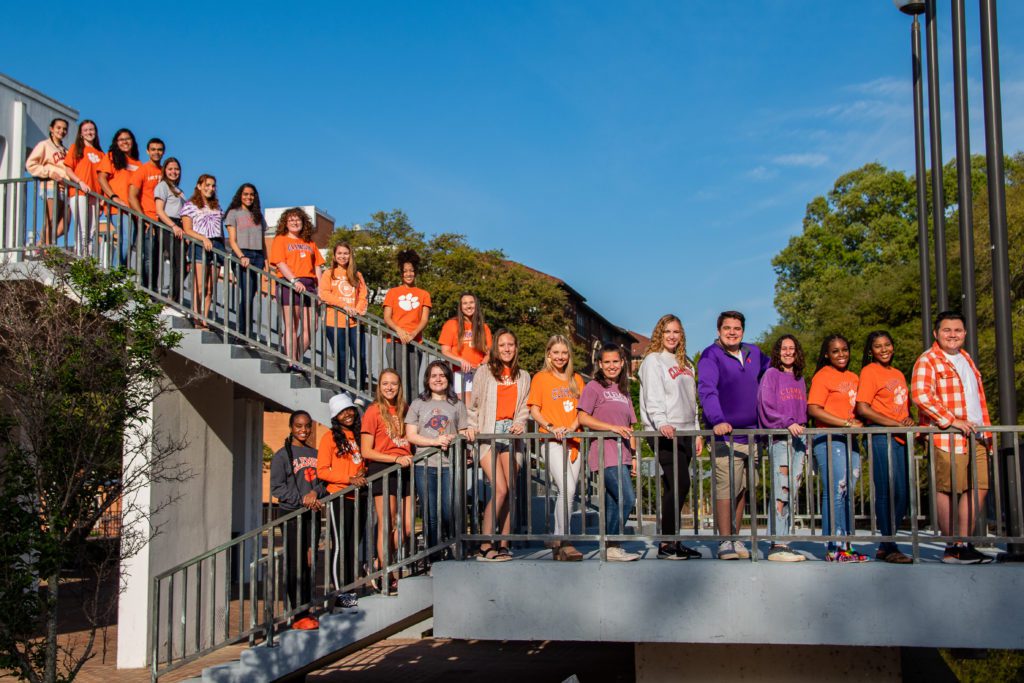
Matthew Boudreaux, assistant director for student transitions, said CSLE typically recruits about 30 undergraduate ambassadors to facilitate the summer welcome experience for new students. Leaders are trained during the Spring semester through a curriculum that entails enrollment in a three-hour course as well as leadership training. Their aim is very intentional in developing soft skills, as well as the ability to network and make connections with incoming students.
Boudreaux joined the CSLE staff in May 2020 and said this is the first time in his tenure the entire team of Orientation Ambassadors have regularly been in the same room together.
“We are trying to create and set a solid foundation among the Orientation Ambassador experience,” he said. “We explain to them how you carry yourself as a student leader and what our expectations are of them. The impact of what we’re doing is to really set the tone for a team dynamic. That bond is so incredibly important to the overall experience for student staff.”
—–
Hollie Summey oversees quality improvement efforts for Student Health Services. In her role, she leads a team made up of employees at a director level who are responsible for discussing and identifying resolutions to occurrence reports and problem barriers.
“An occurrence report is any issue not consistent with our routine operation or routine care of patients and clients,” she explained. “The problem barrier report is used to for employees to identify any problems or obstacles they see that may impact the student or staff experience.”
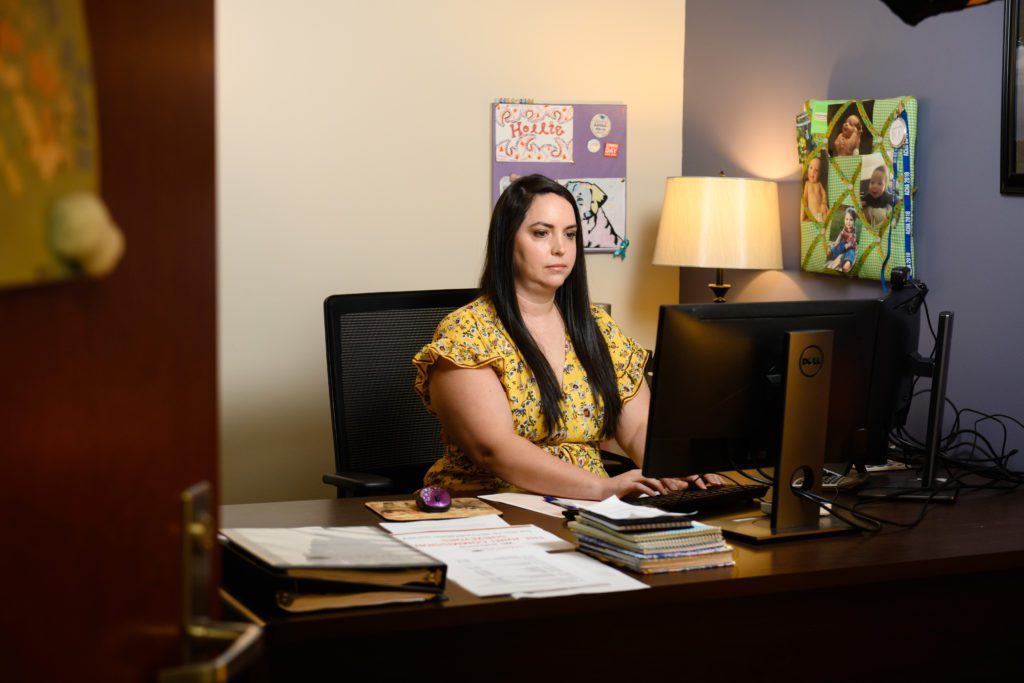
Summey said Student Health Services tracks and categorizes the types of issues that are reported. Some of the most common examples are facility/infrastructure, patient privacy, charting/documentation and scheduling.
As a result of the formal processes that are in place for addressing occurrences and problem barriers, Summey said she has seen impact through improved quality of patient care and safety, sense of ownership, better monitoring of key indicators and the ability to meet high accreditation standards.
“Because we regularly identify areas that need improvement and have a defined process for staff to report issues they see, we are constantly getting new information from our staff on the types of services we are providing.”
—–
Abi Case is a graduate student in the student affairs master’s program at Clemson. One of her most significant professional development opportunities took place during a practicum with Student Affairs Director of Assessment Dr. Kristin Walker-Donnelly.
Under Walker-Donnelly’s leadership, Case served on the coordinating committee for Clemson University Graduate Assistant Recruitment and Selection (CU-GARS). CU-GARS is the vehicle for how applicants to the master’s program apply and interview for assistantships through a variety of departments inside and outside of Student Affairs.
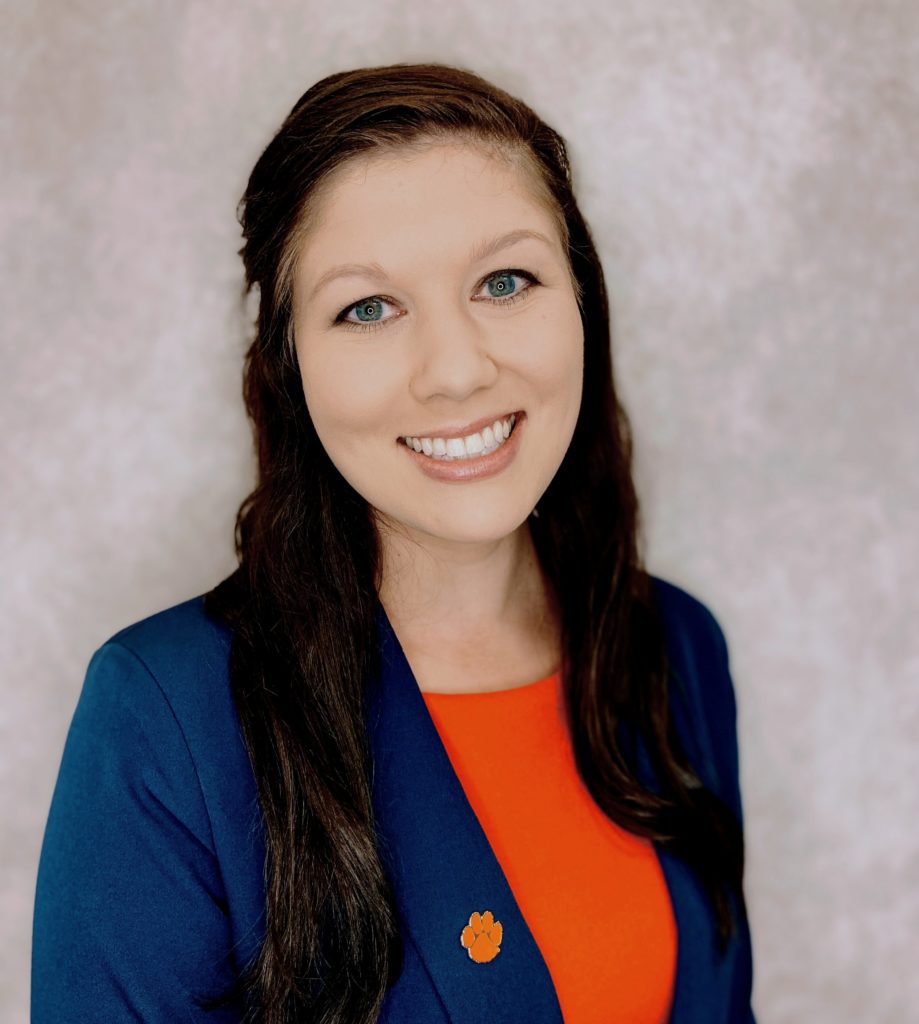
The coordinating committee created several goals for this year’s process, including an enhanced quality of assistantship position descriptions and to reinvigorate leadership opportunities for current graduate students.
Through a revised program partner philosophy — which included consistent templates provided to departments for position descriptions and a comprehensive website for prospective candidates — changes to CU-GARS proved to be impactful.
During a hybrid (virtual and in-person) interview weekend that took place in mid-February, Case said 38 candidates attended for 30 advertised positions. Current graduate students who were involved in the process gained leadership opportunities, developed creative solutions, collaborated across offices and bonded with candidates.
“We scheduled 230 interviews in one day, which is a lot,” Case said. “Candidates and supervisors had very busy days, but were such troopers! I imagine this will be one of the most fulfilling field experiences of my master’s career.”
—–
The Office of Human Resources provided a guest presentation during the Experience: IMPACT session, led by Derek Ekaitis. He spoke extensively about some of the benefits through the Employee Assistance Program.
Currently, employee assistance is provided through Deer Oaks. Some of the examples of services provided to employees including six free initial counseling sessions per year, ranging in topic from emotional and psychological support to family issues, in addition to childcare or eldercare resources and referrals, and even free legal advice.
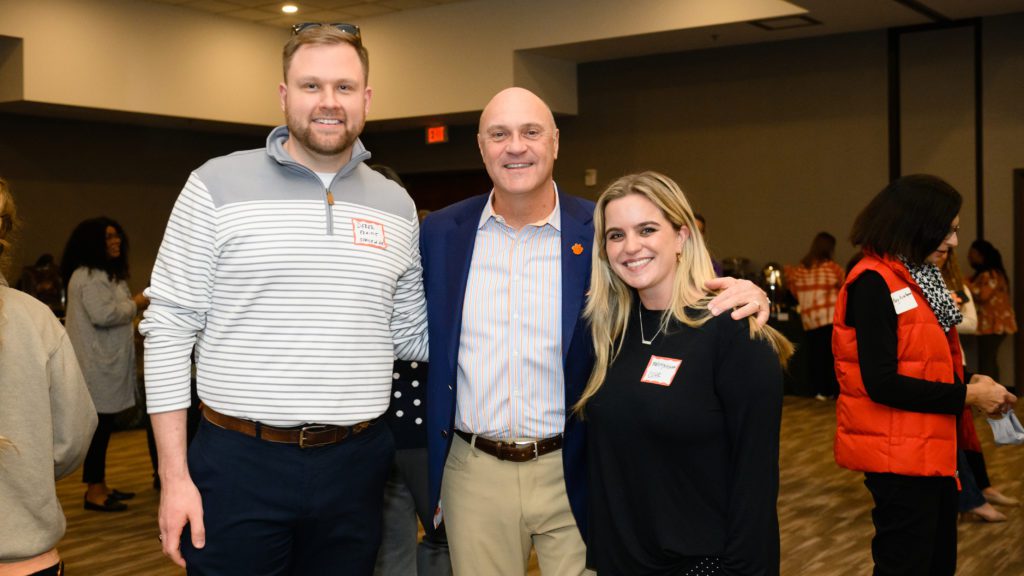
Services are available to employees through the EAP website or by calling 866-327-2400 at any time. Ekaitis reiterated these services are available to University employees from the first day of their employment. In 2021, Human Resources reported 379 cases of employees utilizing Deer Oaks services.
“We’ve worked to increase our offerings via the OUR Clemson newsletter for faculty and staff,” Ekaitis said. “Each Monday, employees can typically see a wellness event that is being offered through Deer Oaks and the Employee Assistance Program.”

